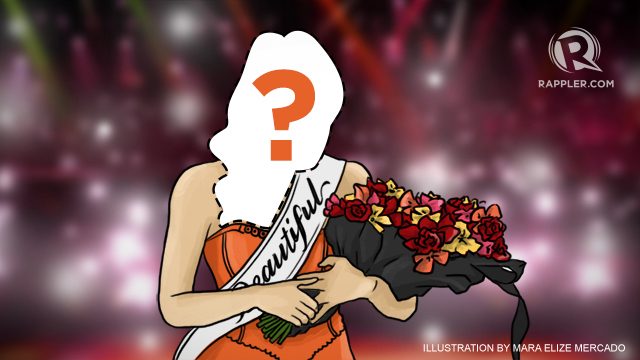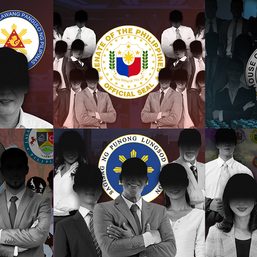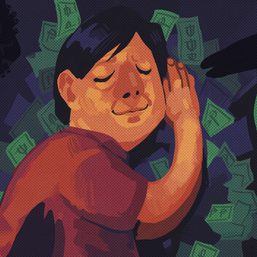SUMMARY
This is AI generated summarization, which may have errors. For context, always refer to the full article.

Imagine a beauty contest where the entire world is asked to vote on the candidates before the appointed judges gave their final scores. Do you think the judges’ scores would be different from that of the popular vote?
When science cuts to our sense of beauty and attraction, it summons a panel where you have seats for different fields of science. Among these, the main chatter will be how our brains are wired to look for signs of health and reproductive fitness. Since the singular focus of our genes is to just go on and on – they would figure out ways to get us to recognize cues that will lead to successful births. This biological drive is the constant din in humanity’s love carnival even if having children is not on top of your mind when you get interested in someone (or in this age, when you send them a “friend request”).
Included in the panel too is how culture, with all its symbols, define and shape our sense of what is beautiful and attractive to us. Implied in all those is what makes us label someone as “hot” has been slowly cooked in our heads for years, formed in early childhood.
But all these long-established explanations have lately been punctured (but not smashed) by careful experiments done in a recent study that proved we can change our opinion of what is beautiful – not just after careful priming that lasts for years but in a flash.
The study tried different scenarios where people were asked to rate the attractiveness of a photo shown to them and also exposing them to the attractiveness ratings done by other people.
In one scenario, the subjects were asked to rate a photo and then after, they were shown the ratings of that same photo by other individuals. Then, a new target photo was shown and the process continued. In this scenario, the subjects tended to agree with the more popular rating as the process went on. This meant, the more you are exposed to the ratings by others, the closer your rating will be to the popular rating.
In another scenario, the research compared the attractiveness ratings that people gave if they have been given information on how others rated the same images, before and after they have given their own ratings.
They found that people will always be increasingly influenced by how others rate the image, regardless of whether they knew about other people’s opinions before or after they were asked to rate the image (since they were shown another photo every after they were shown ratings of others). The group who were never exposed to the information on how others rated their image showed significant independence from other people’s opinions as evidenced by how much they deviated from the popular rating.
In the last scenario, the researchers even “tampered” with the actual popular rating and reduced it. They found that people still would increasingly confirm to the popular rating even if that was not the real one. As long as they were told that this was how others rated an image, they were more likely to conform to the popular rating.
We have long known in science that the ones whom we find as “beautiful” is really the average of all the faces we have scanned, consciously and unconsciously. What we did not know until this study is how fast we could change our minds about who we think is beautiful when we know how others rate the same face. We easily sell ourselves out in this department and more, the research also found that we are not even conscious about being influenced by other people’s opinions.
So the more people rally behind a face, a body, a crown of hair, and say it is indeed beautiful, it seems that you will also be convinced that it is beautiful to you. This is I think is already being mined by many beauty-related industries.
Our sense of beauty does not seem to be as deeply personal as it feels. Now you can look at the most popular face on a billboard and imagine it with this sign: The Most Beautiful Creature to You (Source: “Others”). – Rappler.com
Add a comment
How does this make you feel?




![[PODCAST] Beyond the Stories: Ang milyon-milyong kontrata ng F2 Logistics mula sa Comelec](https://www.rappler.com/tachyon/2021/11/newsbreak-beyond-the-stories-square-with-topic-comelec.jpg?resize=257%2C257&crop_strategy=attention)





![[EDITORIAL] Ang low-intensity warfare ni Marcos kung saan attack dog na ang First Lady](https://www.rappler.com/tachyon/2024/04/animated-liza-marcos-sara-duterte-feud-carousel.jpg?resize=257%2C257&crop=294px%2C0px%2C720px%2C720px)
![[Free to disagree] How to be a cult leader or a demagogue president](https://www.rappler.com/tachyon/2024/04/TL-free-to-disagree.jpg?resize=257%2C257&crop_strategy=attention)
![[OPINION] Can Marcos survive a voters’ revolt in 2025?](https://www.rappler.com/tachyon/2024/04/tl-voters-revolt-04042024.jpg?resize=257%2C257&crop=251px%2C0px%2C720px%2C720px)
![[Edgewise] Quo vadis, Quiboloy?](https://www.rappler.com/tachyon/2024/03/quo-vadis-quiboloy-march-21-2024.jpg?resize=257%2C257&crop_strategy=attention)
There are no comments yet. Add your comment to start the conversation.